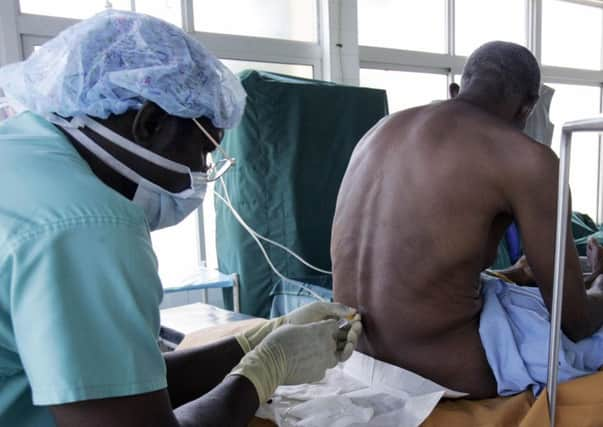Niharika Lal: Only one third of the world's population can access safe surgery


This led me to temporarily leave my training programme to become a consultant anaesthetist and apply to volunteer with Zambia Anaesthesia Development Project (ZADP). Along with three other anaesthetists, I have dedicated six months to developing anaesthetic services in Zambia, leaving paid work, career progression, family and friends behind.
Only two out of the six billion people on this earth have access to safe surgery. The need for surgery in Zambia is great; but the complications that occur are common, often resulting in death. There is a plethora of reasons for this, but the most relevant one that I can help with is the fact that there are only a handful of trained anaesthetists, around one per million people. This is in sharp contrast with the UK where there are around one per 10,000. Surgery is mostly being carried out with inadequate anaesthetic support (in some cases, none at all), meaning that patients have procedures with little pain relief, minimal monitoring and anaesthesia delivered by unskilled hands in remote areas with poor facilities and sterility.
Advertisement
Hide AdAdvertisement
Hide AdThe aim of ZADP is to empower local doctors, to train them to become fully qualified anaesthetists and to develop anaesthesia as a specialty. The hope is that the training will be taken over by local doctors. We aim to make ourselves obsolete; there is no point in a project that aims to be anything other than sustainable. ZADP’s aim is being achieved by firstly creating a training programme (running since 2012) which produces anaesthetists. Secondly, we aim to improve the academic development of the trainees with involvement in research projects which could improve healthcare in their setting and be published in prestigious medical journals. Thirdly, we chair teaching sessions aiding in professional development. And lastly, we supervise trainees in theatre. We teach new clinical techniques and give tips on improvement, not only in the administration of anaesthesia, but in the general safe, clean and efficient running of an operating theatre.
The funding for this worthwhile project is running out. While we are here of our own accord, it costs money to run research projects crucial to the improvement of healthcare, buy medical equipment, and train doctors to become anaesthetists. The anaesthetic programme has recently seen its first graduates who are now senior anaesthetists working independently - we have seen the benefit of running this programme and the improvements it will make in Zambia so need to ensure that it continues. Progress is slow but sure. Given time and resources, this project could vastly improve the surgical management of patients.
Patients die because of unsafe anaesthesia. This is a situation beyond belief in privileged countries such as the UK. The difference between the two settings seems to me like two separate worlds: one in which patients wake up blissfully unaware and comfortable following their surgical procedure, and one in which even children have to grit their teeth through simple yet unsafe surgery that could cost them their lives. Is it fair there should be such a discrepancy? No, but this is the situation in which we find ourselves, which is why it is essential that the work of projects such ZADP is continued.
Niharika Lal has lived in Glasgow since 1998 and works as an anaesthetist with the Zambia Anaesthesia Development Project. For more information go to www.zadp.org